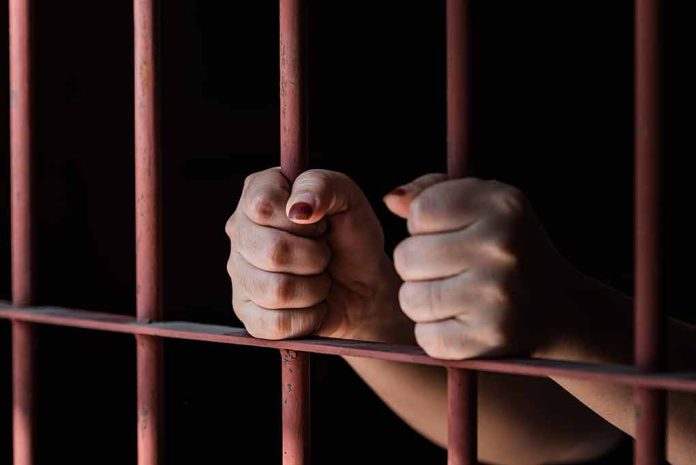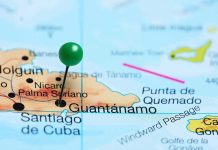
Kilmar Abrego Garcia’s deportation to El Salvador has sparked a fierce political battle between those demanding his return and officials who insist he’s a dangerous illegal immigrant and MS-13 gang member with a history of domestic violence.
Key Takeaways
- Homeland Security maintains Abrego Garcia is an MS-13 gang member, citing a 2019 police encounter where he was discovered with drugs, cash, and gang attire during a murder investigation.
- Democrats call his deportation wrongful and an “administrative error,” with some even labeling it a “government-funded kidnapping rampage.”
- Court records reveal multiple domestic violence allegations against Abrego Garcia from his wife, who reported being beaten and fearing for her safety.
- The Supreme Court ruled the U.S. must facilitate his release from Salvadoran prison, but President Nayib Bukele has refused to return him.
- The case highlights deeper political divisions over immigration enforcement and whether resources should prioritize deported individuals or victims of crime.
Competing Claims About Gang Affiliation
Department of Homeland Security officials have presented evidence they claim establishes Kilmar Abrego Garcia as an active MS-13 gang member. During a 2019 police encounter in Maryland, authorities reportedly found him with gang-affiliated individuals, wearing MS-13 attire, and in possession of drugs and cash. A confidential source identified him as holding the rank of “Chequeo” within the notorious gang. Furthermore, a federal immigration court previously determined he was ineligible for release based on these gang connections.
Abrego Garcia’s attorneys have vigorously disputed these claims, insisting their client has never been convicted of a crime. “Mr. Abrego Garcia has never been convicted of a crime. If the government believes there is a legitimate case to be made, it should present that case in a court of law and have a judge review and decide his fate—not on social media,” his lawyers stated. U.S. District Judge Paula Xinis has also questioned the evidence used to label him as a gang member, raising concerns about procedural fairness.
In 2022, Kilmar Abrego Garcia was detained in Tennessee on suspicion of human trafficking. The TN Highway Patrol was instructed to release him and the seven other people in the car by Biden’s FBI. Garcia was transporting them from Texas to Maryland. https://t.co/z3xFOPEk9a
— Andy Ngo (@MrAndyNgo) April 17, 2025
Domestic Violence Allegations Surface
Court records and police documents reviewed by Fox News reveal troubling allegations of domestic abuse made by Abrego Garcia’s wife, Jennifer Vasquez. These reports paint a picture contradicting portrayal of him as simply a wrongfully deported immigrant. In statements to authorities, Vasquez detailed multiple violent incidents that left her with visible injuries. She expressed fear for her safety in continuing the relationship.
“At this point, I am afraid to be close to him. I have multiple photos/videos of how violent he can be and all the bruises he [has] left me,” Vasquez wrote.
Vasquez further detailed specific incidents of alleged abuse in her statements to authorities. “In November 2020, he hit me with his work boot. In August 2020, he hit me in the eye leaving a purple eye,” she reported. These allegations have added another layer of complexity to a case already fraught with political controversy, as critics question the priority being placed on returning an illegal immigrant with this alleged history.
Political Battle Lines Drawn
Democratic lawmakers have strongly criticized the deportation, with some using remarkably strong language to characterize the action. Representative Maxwell Frost (D-Fla.) called it part of a “government-funded kidnapping rampage,” reflecting the emotional intensity surrounding the case. Multiple Democratic representatives have traveled to El Salvador advocating for his release, arguing the deportation violated due process and that a previous immigration judge had barred his removal.
Homeland Security Secretary Kristi Noem has countered this narrative, arguing that public attention should focus more on victims than on those accused of serious crimes. “We hear far too much in the mainstream media about sob stories of gang members and criminal illegals and not enough about their victims,” she stated. This sentiment was echoed by the mother of Rachel Morrin, a Maryland woman who was murdered by an illegal immigrant in 2023, who questioned why congressional resources were being used to advocate for Abrego Garcia’s return while crime victims received less attention and support.
International Standoff Continues
Despite a Supreme Court ruling that the U.S. government must facilitate Abrego Garcia’s release from Salvadoran custody, President Nayib Bukele has firmly refused to return him to the United States. This has created an unusual diplomatic impasse between the two nations. Bukele, known for his tough stance on gangs and crime, appears unmoved by pressure to release the man Salvadoran authorities are now holding in custody under their own legal system.
Abrego Garcia, who admitted to entering the United States illegally in 2012, now finds himself at the center of a complex legal and political standoff that transcends borders. His case continues to highlight the broader tensions in American immigration policy and deportation efforts. As the situation develops, it remains unclear what will resolve the deadlock.









